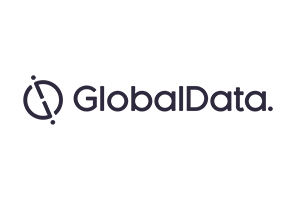Amgen’s Neupogen (filgrastim) was the first biologic to face biosimilar competition in the US, with the approval of Sandoz’s Zarxio in March 2015, adding to the multiple filgrastim biosimilars already available around the world. Neupogen and Zarxio are FDA-approved to treat neutropenia and neutropenia-related clinical sequelae as a result of myelosuppressive chemotherapy, bone marrow transplantation, induction or consolidation chemotherapy for acute myeloid leukemia, and in patients undergoing autologous peripheral blood progenitor cell collection and therapy. However, the current market leader and long-acting version of Neupogen, Amgen’s Neulasta (pegfilgrastim), currently faces no biosimilar competition in the US, EU, or Japan. Having generated $4.6B in revenue in 2016, and being ‘simply’ an off-patent, pegylated version of filgrastim, Neulasta would appear to be a clear target for biosimilar developers. However, since no Neulasta biosimilar has yet been brought to market, the reasoning behind this gap has been called into question.
Various companies have tried to develop a Neulasta biosimilar in the past few years. In December 2016, Gedeon Richter announced that it had withdrawn its European marketing application for its biosimilar, pegfilgrastim, following a November 2016 Committee for Medicinal Products for Human Use (CHMP) meeting that was unable to conclude a positive benefit-risk assessment from the data provided. The CHMP was concerned that study results did not show that the biosimilar was handled by the body in the same way as Neulasta, and therefore had not demonstrated high similarity to the branded biologic. In June 2016, Sandoz announced the FDA’s rejection of its Neulasta biosimilar candidate, Zioxtenzo, and subsequently withdrew its EU marketing application for the candidate in January 2017. The main reason for this withdrawal was concerns from the CHMP that the study results were not able to show similar concentrations of pegfilgrastim in the blood after taking Zioxtenzo and Neulasta. In June 2017, the FDA rejected Coherus’ candidate, CHS-1701, and requested both a reanalysis of one subset of subject samples with a revised immunogenicity assay and additional manufacturing-related process information. However, Coherus remains confident that it will be able to address the FDA’s requests in the coming months
The difficulty in gaining approval for a pegfilgrastim biosimilar is likely due to the attribute that sets it apart from filgrastim: a polyethylene glycol (PEG) molecule. While filgrastim is a small protein with 175 amino acids and a molecular weight of 19 kilodaltons, pegfilgrastim is a filgrastim molecule covalently bound to a 20 kilodalton PEG molecule, thus more than doubling the molecular weight of the drug to 39 kilodaltons. The PEG molecule on filgrastim reduces the rate at which the drug is removed from the body, allowing for less frequent administration to patients. The larger size and complexity of the molecule, as well as the slower clearance of the drug from the body, are likely to be the reason for the difficulties faced by biosimilar developers in demonstrating equivalence to Neulasta.
It remains to be seen whether biosimilar manufacturers will able to overcome the challenge of demonstrating sufficient similarity to Neulasta to satisfy regulatory authorities. Perhaps a more important question is whether or not, once a pegfilgrastim biosimilar gains approval, physicians will be reluctant to prescribe it given the aforementioned difficulties.

US Tariffs are shifting - will you react or anticipate?
Don’t let policy changes catch you off guard. Stay proactive with real-time data and expert analysis.
By GlobalData



